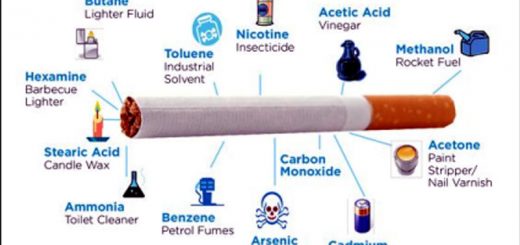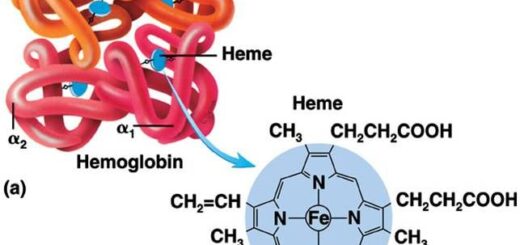Stages of Urine Formation, Importance of Urine in the elimination of drugs and toxins
Formation of urine is a critical process for maintaining the body’s homeostasis and overall health, It involves the kidneys filtering blood to remove waste products, excess substances, and toxins, and then excreting them as urine. The process is essential for several physiological functions.
Urine
The importance of urine lies in its role in maintaining the body’s internal balance, eliminating waste, and supporting key physiological processes. Urine is the final product of the body’s filtration system, primarily managed by the kidneys.
The formation of urine is necessary for maintaining the chemical and fluid balance of the body, It ensures the elimination of harmful substances, regulates essential electrolytes and pH levels, supports normal blood pressure, and conserves vital nutrients. Without proper urine formation, the body would quickly accumulate toxins and waste, leading to severe health problems.
Importance of Urine formation
Waste Excretion
Urine helps in the removal of metabolic waste products like urea, creatinine, and uric acid, which are formed during the breakdown of proteins and nucleic acids. Without urine production, these toxic substances would accumulate in the bloodstream and tissues, leading to harmful effects. Urine plays a key role in getting rid of toxins and harmful substances that enter the body through food, drugs, and environmental exposure. Accumulation of these toxins can be harmful or fatal if not removed efficiently.
Regulation of Electrolyte Balance
Urine formation helps regulate the levels of essential ions such as sodium (Na⁺), potassium (K⁺), calcium (Ca²⁺), and phosphate (PO₄³⁻) in the blood, The kidneys ensure that the concentration of these ions remains within the optimal range, which is essential for nerve function, muscle contraction, and heart rhythm.
Regulation of Fluid Balance
Water Homeostasis: The kidneys play a vital role in controlling the body’s water content. By adjusting the concentration and volume of urine, the body can maintain proper hydration. If the body is dehydrated, the kidneys conserve water by producing concentrated urine, while in states of overhydration, they excrete dilute urine.
The kidneys regulate the body’s water content by adjusting urine output. When the body is hydrated, more urine is produced to maintain the water balance, and when dehydrated, the body conserves water by reducing urine volume. This helps maintain optimal hydration levels for normal physiological functions.
Regulation of Blood Pressure
By managing fluid levels, the kidneys influence blood volume, which directly affects blood pressure. Through urine formation, they help maintain the right balance of water and sodium in the body. In response to certain hormones like aldosterone and antidiuretic hormone (ADH), the kidneys adjust urine output to either conserve or eliminate water, stabilizing blood pressure.
Through urine production, the kidneys manage blood volume and sodium levels, which directly affect blood pressure. Excess fluid and sodium are excreted to prevent high blood pressure, while retention of these elements helps when the body needs to raise blood pressure.
Acid-Base Balance
Urine formation is essential for maintaining the acid-base balance of the body. The kidneys excrete hydrogen ions (H⁺) and reabsorb bicarbonate (HCO₃⁻) to prevent acidosis (too much acidity) or alkalosis (too much alkalinity). This keeps the blood pH within the narrow range necessary for enzyme activity and biochemical processes. the kidneys help keep blood pH within a normal range (around 7.4). This balance is vital for proper enzymatic activity and metabolic functions.
Elimination of Drugs and Toxins
Many drugs and toxins, including medications and environmental pollutants, are filtered by the kidneys and excreted through urine. This process protects the body from potentially harmful substances and prevents their buildup in the system.
Hormone Regulation and Red Blood Cell Production
The kidneys produce erythropoietin, a hormone that stimulates the production of red blood cells in the bone marrow, which is critical for transporting oxygen throughout the body, Adequate urine formation helps ensure the kidneys function properly, supporting the regulation of oxygen-carrying capacity in the blood.
Conservation of Nutrients
During urine formation, the kidneys filter the blood but selectively reabsorb useful substances like glucose, amino acids, and vitamins.
Prevention of Edema and Fluid Retention
Fluid Control: By regulating the volume of water and sodium in the body, urine helps prevent fluid retention and edema (swelling). Without proper elimination of excess fluid, conditions like heart failure, kidney disease, and hypertension could worsen due to fluid buildup.
Role in Homeostasis
Urine formation is prominent in maintaining overall body homeostasis, It balances the levels of electrolytes, fluids, acids, and bases, all of which are necessary for the proper functioning of cells, organs, and systems in the body.
Temperature and Toxin Regulation
Urine formation helps in regulating body temperature and the removal of heat through the excretion of water. By excreting wastes in the form of water, the kidneys help manage both toxin levels and heat, indirectly supporting thermoregulation.
Stages of Urine Formation
Urine formation occurs through three main processes:
- Filtration (in the glomerulus): Blood is filtered under pressure, removing water, ions, glucose, and waste products, forming the initial filtrate.
- Reabsorption (in the renal tubules): Useful substances (water, glucose, ions) are reabsorbed back into the bloodstream, preventing their loss.
- Secretion (in the distal tubules and collecting ducts): Many additional waste products and ions are secreted into the filtrate, and this concentrated fluid becomes urine.
Urine is essential for the body’s overall health, helping in the excretion of wastes, regulation of electrolytes and fluid balance, maintenance of acid-base equilibrium, blood pressure control, and detoxification. Without proper urine production, the body would not be able to maintain these critical functions, leading to serious health consequences.
You can subscribe to Science Online on YouTube from this link: Science Online
You can download Science Online application on Google Play from this link: Science Online Apps on Google Play
Urinary incontinence treatment, types, causes and How to stop urine leakage
Incontinence of urine causes, types, treatment, and How to solve urine leakage problems?
What are urinary tract infections?, kidney problems, Urinary retention, and Bladder stones
Functions of Kidneys, Role of Kidney in glucose homeostasis, Lipid and protein metabolism
Histological structure of kidneys, Uriniferous tubules, and Types of nephrons
Urine formation, Factors affecting Glomerular filtration rate, Tubular reabsorption and secretion
Urinary passages function, structure of Ureter, Urinary bladder, and Uvulae vesicae
Urinary system structure, function, anatomy, organs, Blood supply, and Importance of renal fascia
Urinary bladder structure, function, Control of micturition by Brain, and Voluntary micturition




